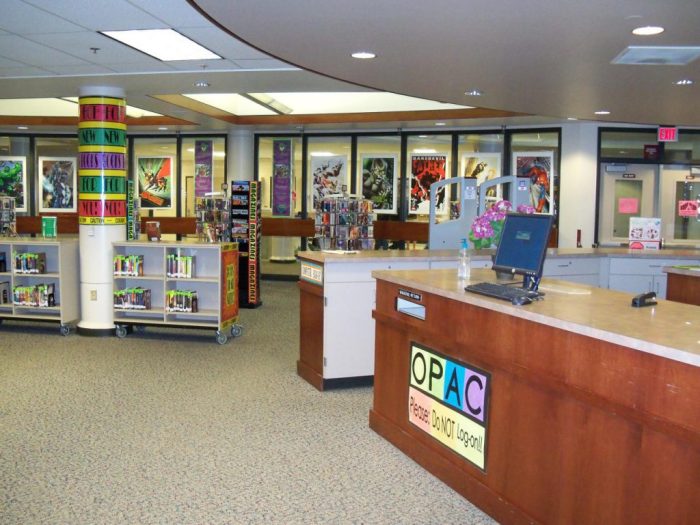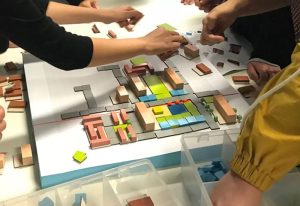
Educational resources for library media specialists set the stage for this enthralling narrative, offering readers a glimpse into a story that is rich in detail with spiritual motivation teaching style and brimming with originality from the outset.
As we delve into the world of educational resources for library media specialists, we uncover a treasure trove of information and tools that can uplift and empower individuals in their quest for knowledge and growth.
Educational resources for library media specialists
Educational resources play a crucial role in supporting library media specialists by providing them with the necessary tools, knowledge, and skills to excel in their roles. These resources help them stay updated with the latest trends, technologies, and best practices in the field, enabling them to effectively serve their patrons and enhance the overall library experience.
Examples of online platforms offering educational resources for library media specialists
- American Association of School Librarians (AASL): A leading organization that offers a wide range of professional development resources, webinars, and workshops specifically designed for library media specialists.
- Library of Congress: Provides online courses, tutorials, and digital collections that can help library media specialists enhance their research skills and knowledge of primary sources.
- Edutopia: Offers articles, videos, and guides on innovative teaching strategies, technology integration, and other relevant topics for library media specialists.
The importance of staying updated with the latest educational resources
It is essential for library media specialists to stay updated with the latest educational resources to ensure they are equipped with the most current information, tools, and strategies to support their patrons effectively. By staying informed, they can adapt to changes in technology, curriculum requirements, and information literacy standards, ultimately enhancing the quality of services they provide.
Engineering Education
Engineering education plays a crucial role in preparing students for the challenges of the real world. By equipping students with the necessary knowledge and skills, engineering education sets the foundation for future success in various industries.
Key Components of Engineering Education
- Strong foundation in mathematics and science: Engineering education emphasizes a solid understanding of mathematics and science concepts to solve complex problems.
- Hands-on experience: Practical applications such as laboratory work, internships, and projects help students apply theoretical knowledge to real-world scenarios.
- Critical thinking and problem-solving skills: Engineering education fosters analytical thinking and problem-solving abilities to address challenges creatively.
- Communication and teamwork: Collaborative projects and presentations enhance communication skills and teamwork, essential for success in the professional world.
Benefits of Integrating Practical Applications
- Enhanced learning experience: Practical applications provide a hands-on approach that reinforces theoretical concepts and improves retention.
- Real-world relevance: Integrating practical applications prepares students for industry demands and helps bridge the gap between academia and the workforce.
- Skill development: Hands-on experience cultivates practical skills, such as problem-solving, critical thinking, and project management, essential for engineering careers.
Preparation for Real-World Challenges
- Adaptability: Engineering education instills adaptability by exposing students to various scenarios and challenges, preparing them for dynamic work environments.
- Innovation: By encouraging creativity and out-of-the-box thinking, engineering education equips students to tackle complex problems with innovative solutions.
- Professional growth: The skills and knowledge gained through engineering education empower students to navigate real-world challenges and continue their professional development throughout their careers.
Educational Resources
In the field of education, there are various types of educational resources available for educators to utilize in their teaching practices. These resources play a crucial role in enhancing the learning outcomes of students by providing additional support, engaging materials, and diverse perspectives.
Types of Educational Resources
- Textbooks: Traditional resources that provide structured content and information for specific subjects.
- Online Platforms: Websites, apps, and online courses that offer interactive learning materials and resources.
- Educational Videos: Visual aids that help explain complex concepts in a more engaging and accessible way.
- Simulations and Games: Interactive tools that allow students to apply theoretical knowledge in practical scenarios.
- Teaching Aids: Manipulatives, charts, graphs, and other visual aids that enhance understanding and retention.
Impact of Utilizing Educational Resources
Educational resources play a vital role in enhancing learning outcomes by catering to diverse learning styles, promoting active engagement, and providing additional support for students who may need extra assistance. By incorporating various resources into lesson plans, educators can create a dynamic and enriching learning environment that fosters critical thinking, creativity, and collaboration among students.
Strategies for Incorporating Educational Resources
- Identify Learning Objectives: Align educational resources with specific learning goals to ensure relevance and effectiveness.
- Provide Guidance: Offer clear instructions and guidance on how to use educational resources to maximize their impact.
- Promote Interaction: Encourage students to actively engage with the resources through discussions, activities, and group work.
- Assess Understanding: Use educational resources as tools for formative assessment to gauge student understanding and progress.
- Stay Updated: Continuously explore new educational resources and technologies to keep lessons fresh and engaging.
Online Education
Online education has become increasingly popular in recent years, offering students the flexibility to learn at their own pace and convenience. Compared to traditional classroom learning, online education provides a unique set of advantages and challenges for both students and educators.
The role of technology in shaping the future of online education cannot be overstated, as it continues to revolutionize the way we teach and learn.
Advantages of Online Education
- Flexibility in scheduling, allowing students to balance work, family, and education.
- Accessibility to a wider range of courses and programs from anywhere in the world.
- Cost-effectiveness, as online education often eliminates the need for commuting or relocating.
- Personalized learning experiences tailored to individual needs and learning styles.
Challenges of Online Education
- Lack of face-to-face interaction with instructors and peers, leading to potential feelings of isolation.
- Self-discipline and time management skills are crucial for success in online courses.
- Technical issues and internet connectivity problems can disrupt the learning process.
- Ensuring academic integrity and preventing cheating in an online environment can be challenging.
Role of Technology in Online Education
Technology plays a vital role in shaping the future of online education by enabling innovative teaching methods and interactive learning experiences. With the advancement of virtual reality, artificial intelligence, and online collaboration tools, educators can create engaging and immersive learning environments for students.
Additionally, technology allows for real-time feedback, personalized learning pathways, and adaptive assessments to enhance the overall educational experience in online settings.
Educator Development

Continuous professional development is crucial for educators to stay updated with the latest teaching methods, technologies, and educational trends. It ensures that educators are equipped with the necessary skills and knowledge to effectively engage students and provide quality education. By investing in their own development, educators can enhance their teaching abilities and create a more enriching learning experience for their students.
Importance of Continuous Professional Development
- Keeps educators informed about new teaching strategies and methodologies.
- Helps educators stay current with advancements in technology and educational tools.
- Encourages lifelong learning and personal growth.
- Enhances educators’ ability to adapt to the changing needs of students and the educational landscape.
Programs and Initiatives Supporting Educator Development
- Professional Development Workshops: Hands-on training sessions focused on specific skills or subjects.
- Mentorship Programs: Pairing experienced educators with new or less experienced teachers for guidance and support.
- Online Courses and Webinars: Flexible learning opportunities that allow educators to upskill from anywhere.
- Conferences and Seminars: Events where educators can network, learn from experts, and share best practices.
Contributions to Student Success and Educational Quality
- Improved Teaching Effectiveness: Educators who engage in professional development are better equipped to meet the diverse needs of their students.
- Enhanced Student Engagement: Educators who continuously develop their skills can create more engaging and interactive learning experiences for students.
- Higher Academic Achievement: Educator development contributes to improved student outcomes and overall academic performance.
- Positive School Culture: Investing in educator development fosters a culture of continuous learning and growth within educational institutions.
Educational Technology
Educational technology refers to the use of digital tools, software, and resources to enhance teaching and learning experiences in educational settings. In modern education systems, technology plays a crucial role in transforming traditional methods of instruction and providing students with engaging and interactive learning opportunities.
Innovative Educational Technologies
Innovative educational technologies such as virtual reality (VR) and augmented reality (AR) are revolutionizing the teaching and learning process. VR allows students to immerse themselves in realistic simulations and environments, enhancing their understanding of complex concepts. AR, on the other hand, overlays digital information onto the real world, creating interactive and dynamic learning experiences.
- Virtual reality (VR) technology can be used to simulate historical events, scientific experiments, and even virtual field trips, providing students with a hands-on and immersive learning experience.
- Augmented reality (AR) applications can enhance traditional textbooks by overlaying interactive 3D models, videos, and animations, making learning more engaging and interactive for students.
Educators can leverage these innovative technologies to create personalized learning experiences tailored to individual student needs and preferences.
Challenges and Ethical Considerations
The use of educational technology in classrooms also brings about challenges and ethical considerations that need to be addressed. These include issues related to data privacy, digital divide, and screen time management.
- Data Privacy: Educators must ensure that student data is protected and secure when using educational technology platforms and tools.
- Digital Divide: Not all students have equal access to technology resources, leading to disparities in learning opportunities. It is essential to bridge this digital gap to ensure equitable access to educational technology.
- Screen Time Management: Excessive screen time can have negative impacts on students’ health and well-being. Educators should balance the use of technology with offline activities to promote a healthy learning environment.
Closing Summary

In conclusion, the journey through educational resources for library media specialists opens doors to endless possibilities and opportunities for personal and professional development. Embrace the power of knowledge and continue to seek new horizons in the ever-evolving landscape of education.





